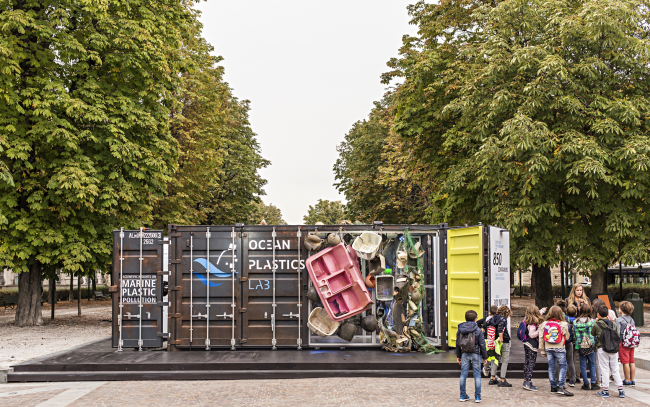Plastic Pollution in Our Ocean – Public lecture series in Brussels

On the occasion of the traveling exhibition ‘Ocean Plastic Lab’ visiting Brussels,we are organising a public lecture series on plastic pollution in the ocean in Brussels.
- 11 April: Plastic pollution in our ocean – Tackling a mammoth task
- 17 April: Plastic in de oceaan – Wat is het probleem en wat kunnen we doen?
- 18 April: Plastique dans l’océan – Quel est le problème et que pouvons-nous faire?
The public lecture series is brought to you by the German Marine Research Consortium, JPI Oceans, CSA Oceans 2 and the Royal Belgian Institute for Natural Sciences. The Ocean Plastics Lab, will be displayed on the EP esplanade from 9-19 April and open to the public from 9am-8pm (10am-7pm on weekends). The Ocean Plastics Lab is an initiative German Federal Ministry of Education and Research supported by the European Commission and the SEARICA Intergroup of the European Parliament and is coordinated by the German Marine Research Consortium (KDM).
Background:
Between 4 and 12 million tons of plastic end up in the ocean every year. That is equivalent to about one shipping container filled with plastic dumped into the ocean every minute. Once in the ocean, plastic doesn’t disappear. Ocean currents and winds carry it to every corner of the planet and, on top of that, it often takes hundreds of years to decompose, accumulating in the water column or on the seafloor; often with deadly consequences. Up to 1,400 different species are affected by marine litter: they get entangled or injured by rubbish or confuse plastic with food. Once in the food chain, plastic threatens not only animals, but perhaps also humans.
JPI Oceans Microplastics activities
The toxicological and ecological effects on marine organisms and ultimately on human health are still insufficiently studied. Hence, for the protection of marine habitats and the safety of marine resources and seafood, ten Member Countries of JPI Oceans launched a joint call on microplastics in January 2015 with an overall budget of approx. €7.5m. Four projects were selected for funding from 31 December 2015 for a period of 36 months. Research results of the four projects are displayed at the Ocean Plastics Lab.
More information: http://jpi-oceans.eu/news-events/news/plastic-pollution-our-ocean-%E2%80%93-tackling-mammoth-task-public-debate


 PT
PT ES
ES FR
FR